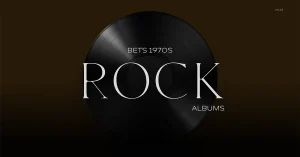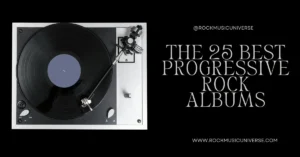British Rock Bands 5 Members
British Rock Bands 5 Members
Introduction: The Power of the Five-Piece in British Rock
When we talk about the legacy of British rock music, one of the most striking aspects is the sheer number of legendary bands that found their perfect chemistry in a five-member lineup. Across decades, from the electrifying birth of rock in the 1960s to the progressive experiments of the 1970s, the heavy metal dominance of the 1980s, and the alternative revolution of the 1990s, the five-piece formation has proven to be a timeless formula. It’s a balance that allows each instrument and voice to shine while creating a sound that feels complete, powerful, and expansive.
Unlike trios that often rely on raw minimalism or larger ensembles that risk overcrowding their arrangements, the five-member structure strikes a golden middle ground. Two guitars create texture and interplay; the bass and drums lock in a rhythmic foundation; the vocals lead the way — and when keyboards or additional instrumentation enter the mix, the music becomes layered without losing clarity. This formation has shaped some of the most defining records in rock history.
In Britain especially, the five-piece lineup became something of a blueprint. Bands like The Rolling Stones, The Yardbirds, and The Who pioneered the sound in the 1960s, influencing generations to come. In the progressive rock era, groups such as Genesis and Yes proved how five musicians could weave symphonic complexity into rock, building entire worlds of sound. The heavy metal movement, led by bands like Iron Maiden and Judas Priest, showed the raw power and theatricality that a five-piece could unleash on stage. Moving into the alternative rock years, acts like Radiohead, Suede, and The Cure demonstrated how this classic formation could adapt to new aesthetics, blending introspection with sonic experimentation.
The enduring appeal of the five-member band goes beyond instrumentation — it’s also about identity. With five unique personalities, each group formed its own mythology. The charismatic frontman, the guitar heroes, the steady rhythm section, the eccentric keyboardist — these archetypes became central to rock’s cultural storytelling. Fans didn’t just listen to the music; they followed the dynamics, friendships, and tensions within the band, often seeing them as a mirror of society’s own struggles and unity.
Today, looking back at these iconic British five-piece bands offers more than nostalgia. It’s a chance to understand how this particular setup shaped the sound, look, and spirit of modern rock. From stadium anthems to underground cult classics, these groups didn’t just entertain — they redefined what rock music could be, and their legacy continues to inspire new generations of musicians around the world.
British Rock Bands 5 Members
🎸 Classic Rock & Hard Rock
- The Rolling Stones – Mick Jagger, Keith Richards, Charlie Watts, Bill Wyman, Brian Jones (later Ronnie Wood)
- The Yardbirds – Eric Clapton / Jeff Beck / Jimmy Page era lineups all worked as five-pieces
- Bad Company – Paul Rodgers, Mick Ralphs, Boz Burrell, Simon Kirke, plus later fifth members for tours

British Rock Bands 5 Members
🎶 Progressive Rock
- Genesis – Peter Gabriel, Phil Collins, Steve Hackett, Tony Banks, Mike Rutherford (classic lineup)
- Yes – Jon Anderson, Chris Squire, Steve Howe, Rick Wakeman, Bill Bruford / Alan White
- Marillion – Fish (vocals), Steve Rothery, Mark Kelly, Pete Trewavas, Mick Pointer (early 80s lineup)
- Camel – Andrew Latimer, Peter Bardens, Doug Ferguson, Andy Ward, plus later fifth members

British Rock Bands 5 Members
⚡ Heavy Metal & Harder Edges
- Iron Maiden – Bruce Dickinson, Steve Harris, Adrian Smith, Dave Murray, Nicko McBrain (often touring with more, but core can be five)
- Judas Priest – Rob Halford, Glenn Tipton, K.K. Downing, Ian Hill, Scott Travis
- Def Leppard – Joe Elliott, Rick Savage, Rick Allen, Phil Collen, Vivian Campbell (classic 5-piece since the late 80s)
British Rock Bands 5 Members
🎤 Alternative & Indie
- Radiohead – Thom Yorke, Jonny Greenwood, Colin Greenwood, Ed O’Brien, Phil Selway
- The Cure – Robert Smith, Simon Gallup, Porl Thompson, Boris Williams, Roger O’Donnell (classic 80s lineup)
- Arctic Monkeys (live expanded to 5 with touring keys/guitar, but core is 4—worth noting)
- Suede – Brett Anderson, Bernard Butler, Mat Osman, Simon Gilbert, Justine Frischmann (early lineup, later 5 with Richard Oakes & Neil Codling)




